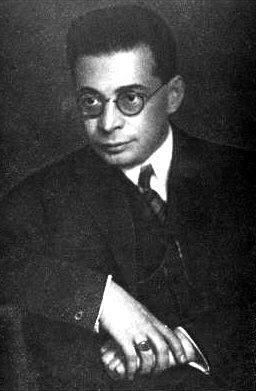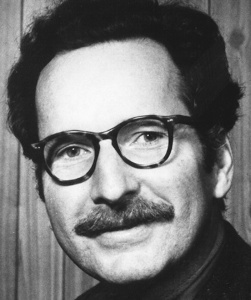Related Research Articles

Otto Rank was an Austrian psychoanalyst, writer, and philosopher. Born in Vienna, he was one of Sigmund Freud's closest colleagues for 20 years, a prolific writer on psychoanalytic themes, editor of the two leading analytic journals of the era, managing director of Freud's publishing house, and a creative theorist and therapist. In 1926, Rank left Vienna for Paris and, for the remainder of his life, led a successful career as a lecturer, writer, and therapist in France and the United States.

Saratoga Springs is a city in Saratoga County, New York, United States. The population was 28,491 at the 2020 census. The name reflects the presence of mineral springs in the area, which has made Saratoga a popular resort destination for over 200 years. It is home to the Saratoga Race Course, a thoroughbred horse racing track, and Saratoga Performing Arts Center, a music and dance venue. The city's official slogan is "Health, History, and Horses."
The Human Potential Movement (HPM) arose out of the counterculture of the 1960s and formed around the concept of an extraordinary potential that its advocates believed to lie largely untapped in all people. The movement takes as its premise the belief that through the development of their "human potential", people can experience a life of happiness, creativity, and fulfillment, and that such people will direct their actions within society toward assisting others to release their potential. Adherents believe that the collective effect of individuals cultivating their own potential will be positive change in society at large.

A worldview or a world-view or Weltanschauung is the fundamental cognitive orientation of an individual or society encompassing the whole of the individual's or society's knowledge, culture, and point of view. A worldview can include natural philosophy; fundamental, existential, and normative postulates; or themes, values, emotions, and ethics.

Ernest Becker was an American cultural anthropologist and author of the 1974 Pulitzer Prize-winning book, The Denial of Death.

The Denial of Death is a 1973 book by American cultural anthropologist Ernest Becker. The author builds on the works of Søren Kierkegaard, Sigmund Freud, Norman O. Brown, and Otto Rank to discuss the psychological and philosophical implications of how people and cultures have reacted to the concept of death. The author argues most human action is taken to ignore or avoid the inevitability of death. It was awarded the Pulitzer Prize for General Nonfiction in 1974, two months after the author's death. It is the main work responsible for the development of terror management theory, which provides empirical support for Becker’s ideas.

Terror management theory (TMT) is both a social and evolutionary psychology theory originally proposed by Jeff Greenberg, Sheldon Solomon, and Tom Pyszczynski and codified in their book The Worm at the Core: On the Role of Death in Life (2015). It proposes that a basic psychological conflict results from having a self-preservation instinct while realizing that death is inevitable and to some extent unpredictable. This conflict produces terror, which is managed through a combination of escapism and cultural beliefs that act to counter biological reality with more significant and enduring forms of meaning and value.

Richard S. Lazarus was an American psychologist who began rising to prominence in the 1960s. A Review of General Psychology survey, published in 2002, ranked Lazarus as the 80th most cited psychologist of the 20th century. He was well renowned for his theory of cognitive-mediational theory within emotion.
Tim Kasser is an American psychologist and book author known for his work on materialism and well-being.

Irvin David Yalom is an American existential psychiatrist who is emeritus professor of psychiatry at Stanford University, as well as author of both fiction and nonfiction.
Counterproductive norms are group norms that prevent a group, organization, or other collective entities from performing or accomplishing its originally stated function by working oppositely to how they were initially intended. Group norms are typically enforced to facilitate group survival, to make group member behaviour predictable, to help avoid embarrassing interpersonal interactions, or to clarify distinctive aspects of the group’s identity. Counterproductive norms exist despite the fact that they cause opposite outcomes of the intended prosocial functions.
The evolutionary psychology of religion is the study of religious belief using evolutionary psychology principles. It is one approach to the psychology of religion. As with all other organs and organ functions, the brain's functional structure is argued to have a genetic basis, and is therefore subject to the effects of natural selection and evolution. Evolutionary psychologists seek to understand cognitive processes, religion in this case, by understanding the survival and reproductive functions they might serve.
Jeff Greenberg is a social psychology professor at the University of Arizona. He is notable for coining the concept of Terror Management Theory, with two of his colleagues, Sheldon Solomon and Tom Pyszczynski.
Tom Pyszczynski is an American social psychologist. He is notable, together with Jeff Greenberg and Sheldon Solomon, for founding the field of Terror Management Theory (TMT). TMT is a theory that is based on the writings of Ernest Becker, along with other existential thinkers such as Søren Kierkegaard, Otto Rank, and Heidegger. At the heart of TMT is the notion that human beings have a unique capacity for self-awareness, which makes them realize that death is inevitable. This realization, which conflicts with people's instinctive need for self-preservation, gives rise to a potential for existential anxiety, or terror, that is greater than that in other animals. To manage this potential for terror, people have constructed cultural worldviews, which assure people of either a literal form of afterlife or a symbolic form of death transcendence. When people live up to the standards implied by their cultural worldviews, they attain a sense of positive self-esteem. Thus, TMT suggests that one major psychological function of self-esteem lies in protecting people against existential anxiety. TMT was explicitly formulated to be open to empirical testing. Indeed, since TMT was first conceived in the 1980s, the theory has inspired hundreds of experiments that were designed to test core ideas of TMT. For instance, in support of TMT, many experiments have shown that reminding people of their own mortality leads people to defend their cultural worldviews more vigorously. For instance, people who are briefly reminded of death are more dismissive of someone who criticizes their culture.

Mortality salience is the awareness by individuals that their death is inevitable.
Self-esteem can be defined as how favorably individuals evaluate themselves. According to Leary, self-esteem is the relationship between one's real self and one's ideal self, feeding off of favorable behaviors. It refers to an individual's sense of their value or worth, or the extent to which a person values, approves of, appreciates, prizes, or likes themselves. Self-esteem is generally considered the evaluative component of the self-concept, a broader representation of the self that includes cognitive and behavioral aspects as well as evaluative or affective ones. There are several different proposals as to the functions of self-esteem. One proposal is that it satisfies the inherent need to feel good about oneself. Another is that it serves to minimize social rejection. Self-esteem is also known as a way for a person to remain dominant in relationships. Self-esteem is known to protect people from potential fear that arises from the prospect of death. Self-esteem helps motivate people to achieve their goals – high self-esteem leading to coping in situations and low self-esteem leading to avoidance.

Death anxiety is anxiety caused by thoughts of one's own death, and is also referred to as thanatophobia. Individuals affected by this kind of anxiety experience challenges and adversities in many aspects of their lives. Death anxiety is different from necrophobia, which refers to an irrational or disproportionate fear of dead bodies or of anything associated with death. Death anxiety has been found to affect people of differing demographic groups as well, such as men versus women, young versus old, etc.

David Hugh Porter was an American academic and the fifth president of Skidmore College in Saratoga Springs, New York, serving from 1987 to 1999. Porter was a professor and lecturer of classics and music, starting his career at Carleton College in Northfield, Minnesota, where he taught from 1962 to 1987.
Anxiety buffer disruption theory (ABDT) is an application of terror management theory to explain an individual's reaction to a traumatic event, which leads to post traumatic stress disorder. Terror management theory posits that humans, unlike any other organism, are uniquely aware that death is the inevitable outcome of life. When thoughts of death are made salient, such as when a terrorist attack carries those thoughts into the level of consciousness, humans are subject to debilitating anxiety unless it can be "buffered." Humans respond to the anxiety and dread mortality salience produces by clinging to their cultural worldview, through self-esteem and also close personal relationships. Cultural worldviews, with their cultural norms, religious beliefs and moral values infuse life with meaning. They give life a feeling of normalcy and also a feeling of control. There is no way to definitely prove one's cultural worldview, there they are fragile human constructs and must be maintained. Clinging to a cultural worldview and self-esteem buffer the anxiety connected to thoughts of mortality. When thoughts of death are salient, humans are drawn to their cultural world view which "stipulates appropriate social requirements, and standards for valued conduct, while instilling one's life with meaning, order and permanence."
References
- 1 2 Solomon, Sheldon; Greenberg, Jeff; Pyszczynski, Tom (2004). Handbook of Experimental Existential Psychology. The Guilford Press. ISBN 1-59385-040-9 . Retrieved August 30, 2020.
- 1 2 Vedantam, Shankar (December 24, 2007). "Reminders of Mortality Bring Out the Charitable Side". Washington Post . p. A03. Retrieved January 18, 2008.
- ↑ Solomon, Sheldon; Greenberg, Jeff; Pyszczynski, Tom (2015). The Worm at the Core: On the Role of Death in Life. Penguin UK. ISBN 9780141981635 . Retrieved August 30, 2010.
- ↑ "Where does the soul go? New course explores spiritual existence". West Hartford News. October 14, 2015.
- ↑ "Michael Moore Presents: Planet of the Humans | Full Documentary | Directed by Jeff Gibbs". YouTube .
{{cite web}}: CS1 maint: url-status (link) - ↑ "City eatery's visitors can't get enough of doughboys – the Daily Gazette". August 19, 2011.